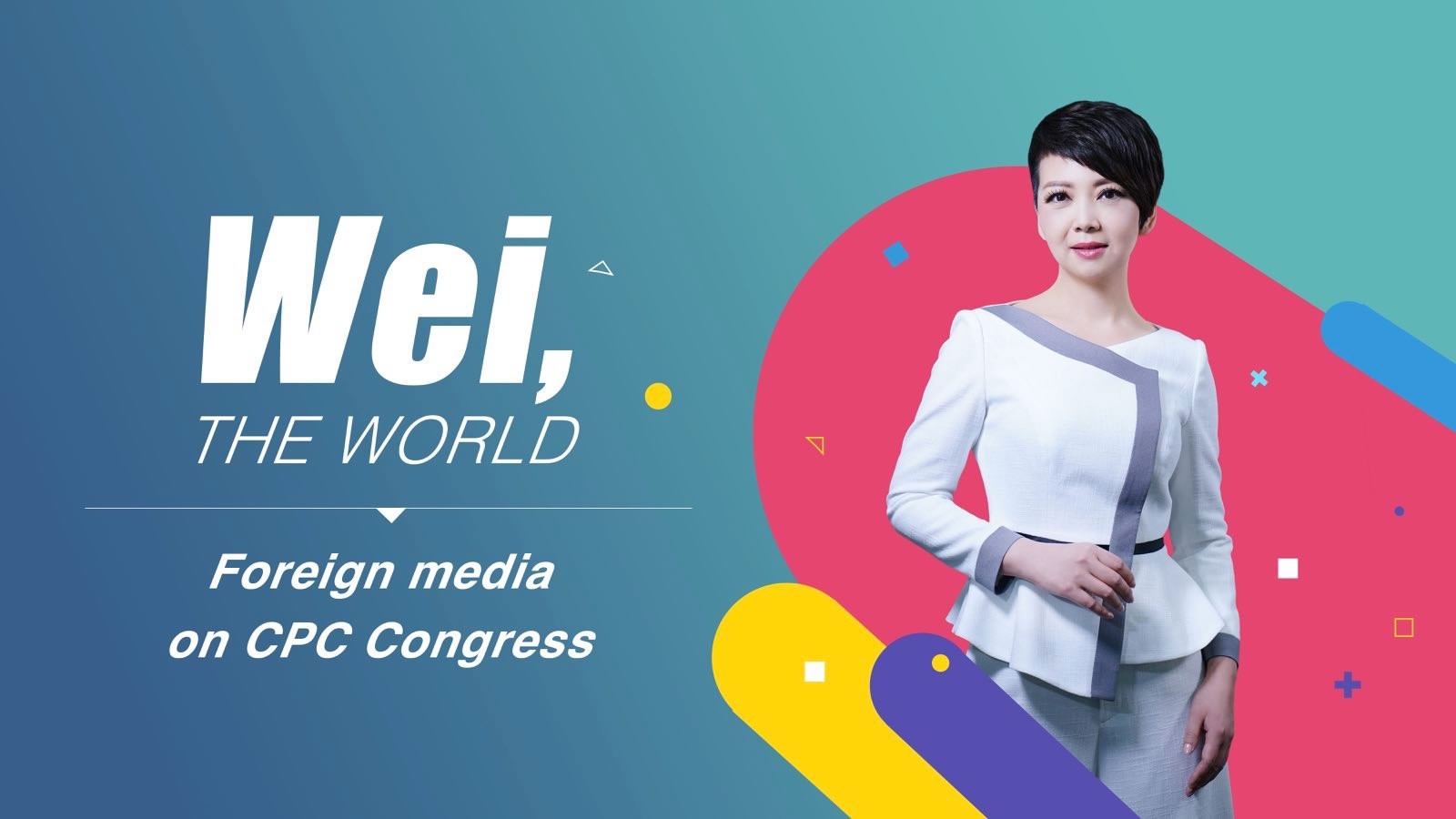
Opinions
17:37, 24-Oct-2017
Wei, the World: Foreign media on CPC Congress
By CGTN's Tian Wei

They say objective journalism and an opinion writing are about as similar as the Bible and Playboy magazine.
But I am serious when I talk about two things that I really care about: China, the country where I am from; and journalism, the profession that I am doing.
Since the last US presidential election, “fake news” has become a global synonym for whatever stories that the public would not trust or do not agree with. It apparently matches with the long frustrations China has about the “western media” -- a name used by China to describe media outlets based in the West -- because of their apparent lack of objective reporting of China.
But how to get it right?
As journalists, we learned some skills: To consult, listen, articulate, and eventually come up with a list of things that can be done.
I invited Jaime FlorCruz, the former Beijing Bureau Chief of CNN and a journalist who has covered China for more than four decades, to my show World Insight.
"We felt very privileged, very excited of course. Because you know months and years before that, foreign journalists were confined to just reading the tea leaves so to speak and guessing what's going on. It took a while to figure it out. So we would drive around Beijing and look for if there are many cars parked in the hotels, possible venues. And then we will hear it days later, the Party Congress has victoriously closed."
That was before the 13th Party Congress, more than 30 years ago, that Jaime recounted. But now, at the 19th Party Congress, there are more than 3,000 journalists, more than half of them came from outside Chinese mainland. Yet the complexity of China stories hasn't changed, arguably even more, said Jaime.
"There is no single story or single picture that can encompass and can define China's complexity. So we have to look at the totality of our reporting to really determine if we are getting it right or wrong. Sure, we have got it wrong sometimes. But I think we have to keep in mind that these are very dedicated foreign journalists who are trying to cover and get China right. I think the key, too, is for them to get the access to news, to the news makers and to the officials. And when they do, I think they do a good job."
Jaime said that he did not pretend to represent all his foreign correspondent colleagues in China. In fact, no one expected him to. No one expected either that every one of the journalists reporting about China has the same country knowledge as Jaime, who after four decades here in China, are even more humble than he used to be about being an ever-learning witness.
So what can China expect? What can China do to help others to "get it right?" I see three things:
Be confident. China's track records speak louder than any biased conclusion: Bringing the largest number of people out of poverty, working its economy to be one of the engines of world growth.
Be consistent. China has been embracing reforms and opening up for almost four decades. In the report delivered by Xi Jinping, the General Secretary of the CPC Central Committee, the Communist Party, as the ruling party, and the country, are still determined to do so.
Last but certainly not the least, be resourceful. For journalists from all over the world, it can be translated as “access" — from zero to hundreds of thousands of international journalists. That alone has demonstrated China's openness. Of course, it is not just about passes to the Great Hall of the People. It is also about the unshaken willingness to communicate truthfully with the rest of the world.
Having said all of these, I'd better get back to work, preparing for my live show for tonight. As you know, changing the world by doing it, even just a small piece of it everyday.
(Tian Wei is a former Washington correspondent; now host of "World Insight with Tian Wei," moderating daily live global debates and doing exclusive interviews with the world's most outstanding people from all walks of life. She has been named a Young Global Leader by the World Economic Forum, and is passionate about public service: National Ambassador for Mental Health Advocacy, Special Advisor to UNDP.)

SITEMAP
Copyright © 2018 CGTN. Beijing ICP prepared NO.16065310-3
Copyright © 2018 CGTN. Beijing ICP prepared NO.16065310-3